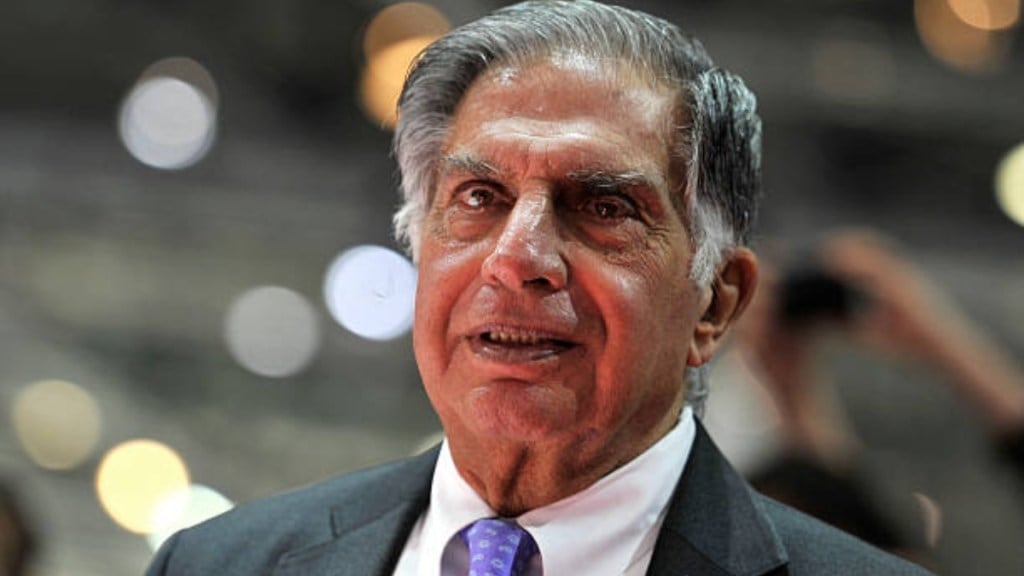“Cyrus Mistry’s British education blinded me. I naively thought that the DNA of a person with such an impressive education would be different,” commented Ratan Tata on why he chose Mistry to head the Tata empire. He also regretted issuing an ultimatum to the committee selecting his successor that he “would walk out on December 28, 2012”, which, he said, put avoidable pressure on the committee, and was the chief reason for the panel to “act in haste”, resulting in Mistry’s selection. Ratan Tata also regretted staying away from the selection process, admitting his approach to the selection had been ‘very idealistic’.
These revelations, and more, are part of industrialist Ratan Tata’s biography, Ratan Tata: A Life, by Thomas Mathew, released by HarperCollins India on Friday.
The authorised biography was reportedly acquired by HarperCollins for a record `2 crore, an unprecedented sum for a non-fiction work, in 2022. The author, Thomas Mathew, is a retired bureaucrat who serves on the board of several large Indian companies.
The book describes how Mistry’s appointment was ‘circumstantial’, and he was selected when the selection panel failed to zero in on a suitable candidate, and upon examining a paper put forth by Mistry on ‘key success factors in managing the Tata Group’, ended up interviewing and choosing him for the chairman’s post.
However, things started unravelling fast, and the book reveals how Ratan Tata was uneasy with Mistry’s decisions as chairman that he felt compromised the Group’s clean image and reputation for fair play. The book describes in detail how there were apprehensions when Mistry steered the Group into businesses outside its core areas, such as infrastructure, where “bribes and corruption” could cause problems for the Tata name. On the failed Docomo venture, when the Japanese company won an award of $1.17 billion, and Tata refused to pay up, the author records Ratan Tata as saying: “If it has (Tata Group) made a commitment, it has to in good faith implement it.”
When N Chandrasekaran took over as the chairman in 2017, one of the first things Ratan Tata did was to go to Singapore to meet the Docomo president, and subsequently pay the $1.17 billion.
The seeds of discontent with Mistry were sown when he stopped consulting Tata Trusts on important decisions. The author describes how Ratan Tata said the acquisition of Welspun’s alternative energy assets by Tata Power for $1.45 billion sans the approval of the Tata Sons’ board was a “real flare-up”. Ratan Tata also admitted he “misjudged Mistry’s approach to business”.
The book records several Tata veterans’ comments on Mistry’s modus operandi, such as Chandrasekaran on Mistry’s group executive council (GEC) comprising only relative youngsters: “You cannot ignore the veterans”. R Mukundan, MD of Tata Chemicals, states: “Wisdom with experience is more sustainable”, and NP Sinha, former vice-president of Tata Steel, being blunt in saying: “His (Mistry’s) appointment itself I would not have done.”
However, the book notes Mistry’s ouster was not a decision taken in a hurry. Ratan Tata assigned Nitin Nohria, dean of Harvard Business School, who was incorporated into the board of Tata Sons, the job to support Mistry, saying: “Nitin, you have one job, and that is to see if there’s any way in which you can help him (Mistry) be successful.” But soon rumours started spreading that Ratan Tata was interfering in Mistry’s work and “stifling the new chairman’s performance”. Ratan Tata initially dealt with it internally, but the chemistry between the two soured, and the Group’s performance also dipped. The decision to oust Mistry was taken in October 2016, and the author writes Ratan Tata knew “he would be misunderstood” and criticised, and that the move would be costly to his reputation.







